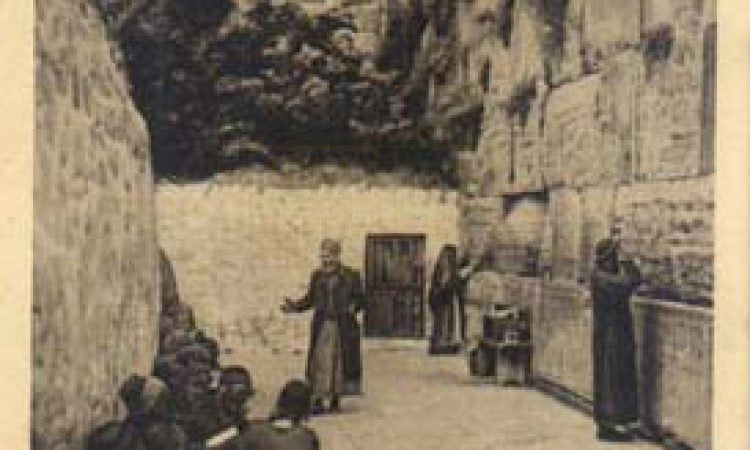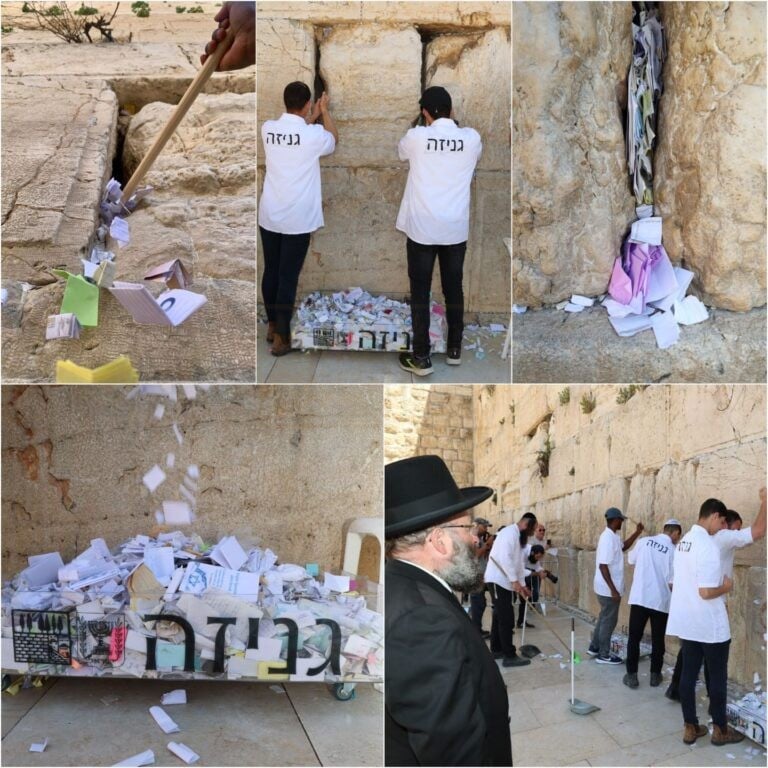Bs”d Acharei Mot – Kedoshim, 5783
Rabbi Shmuel Rabinowitz, Rabbi of the Western Wall and Holy Sites
Among the many commandments that we read in the first part of Parashat Kedoshim — the commandments that direct man toward holiness — we find two of the commandments called “gifts of the poor.” These commandments instruct the Jewish farmer to give of his crops to those who are less fortunate and cannot earn a dignified living on their own. The commandments of this category that appear in Parashat Kedoshim are: “pe’ah”, “leket”, “olelot”, and “peret”. In the book of Deuteronomy, we find additional commandments from this category: “tithes of the poor” and “shichecha.”
Let us elaborate a little on the content of these commandments. According to the mitzvah of “pe’ah”, the farmer leaves an area at the end of the field – about 2% of the field – that is not harvested. The grain grown in this area belongs to the poor who come and harvest it for their needs. The mitzvah of “leket” deals with crops that fall from the harvester’s hands while harvesting the field. If one or two stalks fall – the harvester is not allowed to lift them from the ground, and they are left to the poor who come after the harvest and collect the individual crops. The commandment of ‘olalot’ refers to the owner of a vineyard who harvests the grapes grown in his vineyard. The vineyard owner is commanded to leave on the branches of the vine the small clusters that have not developed, and after the harvest the poor come and pick these clusters for themselves. The commandment of “peret” also deals with a vineyard, and like the mitzvah of “leket”, it deals with individual grapes that fell during harvest from the clusters – these grapes remain in the field for the poor.
To complete the picture, we will also list the “gifts of the poor” written in Deuteronomy: In the “poor tithe,” the farmer sets aside a tenth of the crop in some years (in the third and sixth years of a seven-year cycle) and gives it to the poor; The commandment of “shichecha”, on the other hand, deals with sheaves forgotten in the field, which the farmer may not return to take for himself, but leaves to the poor.
In fact, apart from a poor tithe that can add up to a substantial amount of crop, the other gifts of the poor are rather meager leftovers of the crop: a small, unharvested area at the edge of the field, individual sheaves and grapes that have fallen, forgotten sheaves, or small clusters of grapes. This does not seem to be enough to support a poor person, certainly not if a number of poor people came to the field to take the crops or grapes left for them by the owner of the field and the vineyard.
What, then, is the purpose of these commandments? If the poor cannot make a living from these few crops, why is the farmer required to leave them in the field? What is the benefit of leaving small clusters of grapes or individual grapes that have fallen to the ground?
It seems that these “gifts of the poor” were not intended for the poor, but rather for the farmer. The person who owns property, land, and crops may fall into the trap of feeling in control of his property. A person has a tendency to dominate and feel ownership that can lead to pride and egocentrism. The Torah addresses man as he harvests the grain or the grapes of the vineyard and seeks to educate him to humility and to embrace the insight that the land and property were given to him by G-d, and that he must humbly express gratitude for his good fate.
When a person harvests his field, the Torah stops him before finishing the harvest and instructs him to leave a small area at the edge of the field for others. The field may be yours – but don’t take control over it. The same is true in the vineyard. Harvest the grapes but do not complete the harvest; The sparse clusters will remain on the branch; another person will come and take them. The sheaves or grapes that have fallen will remain on the ground. Stop your control!
Most of us are not farmers and we don’t get to fulfill these commandments. But we face that sense of control in every area of our lives. A person tends to take control over his home, his property, his family, the road on which he travels. The sense of ownership and control accompanies us from a young age, and we are called upon to stop control, leave a little to others, and recognize that everything we have is given to us by the grace of G-d.








